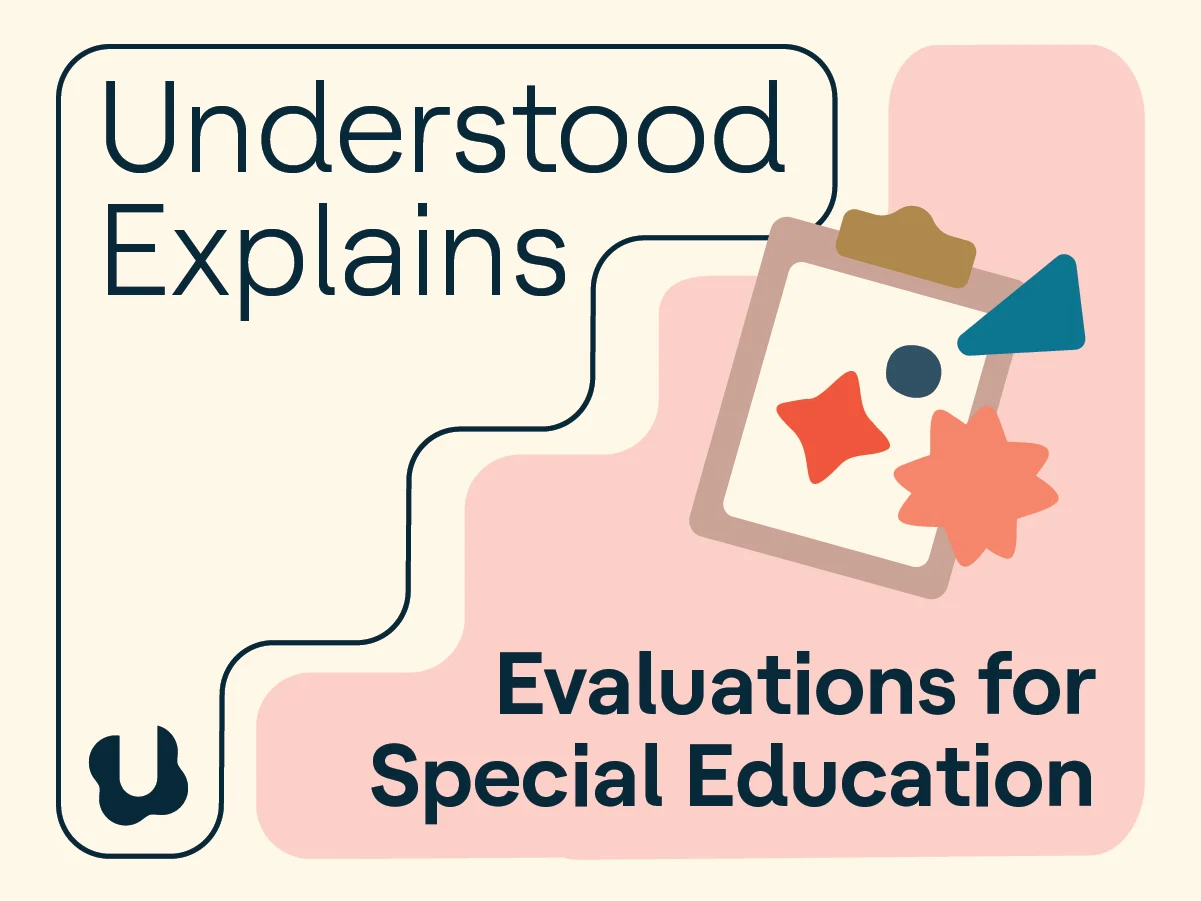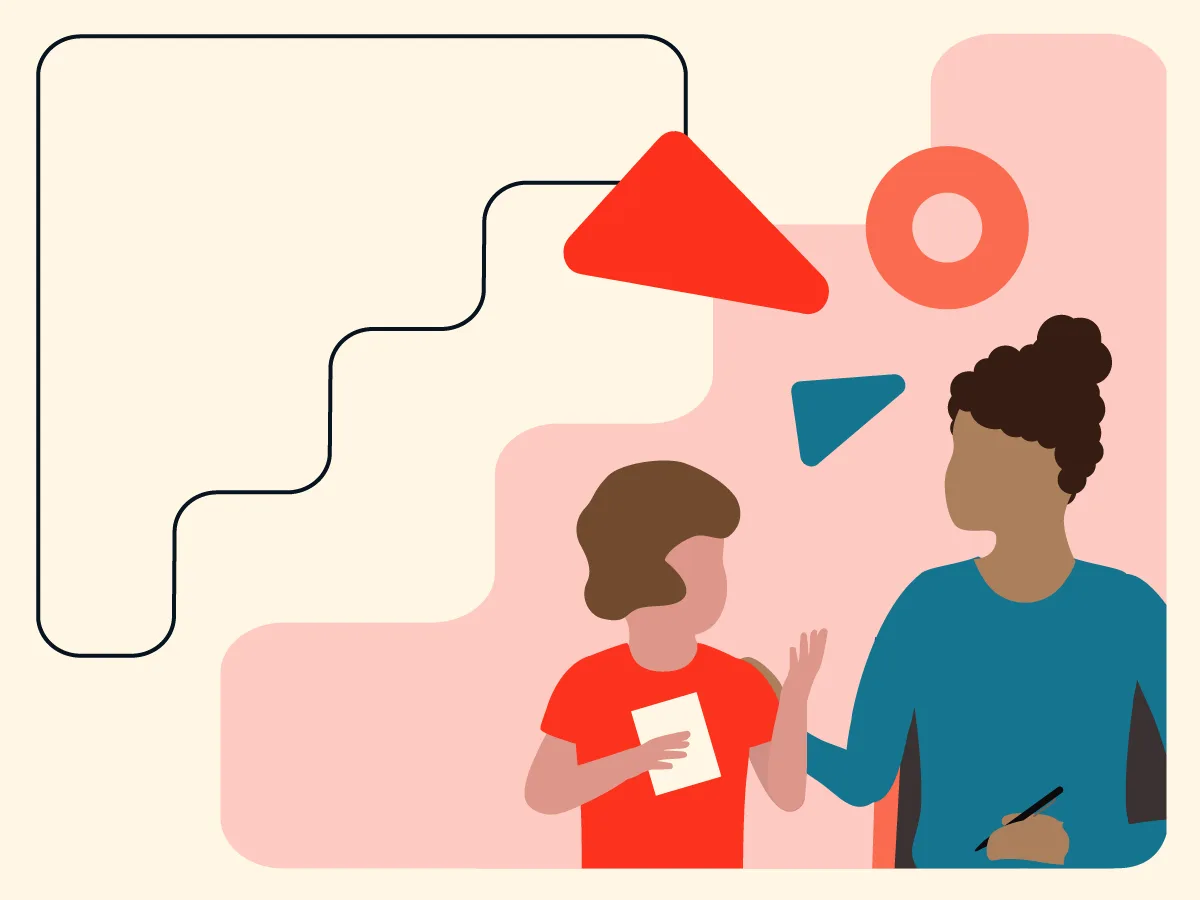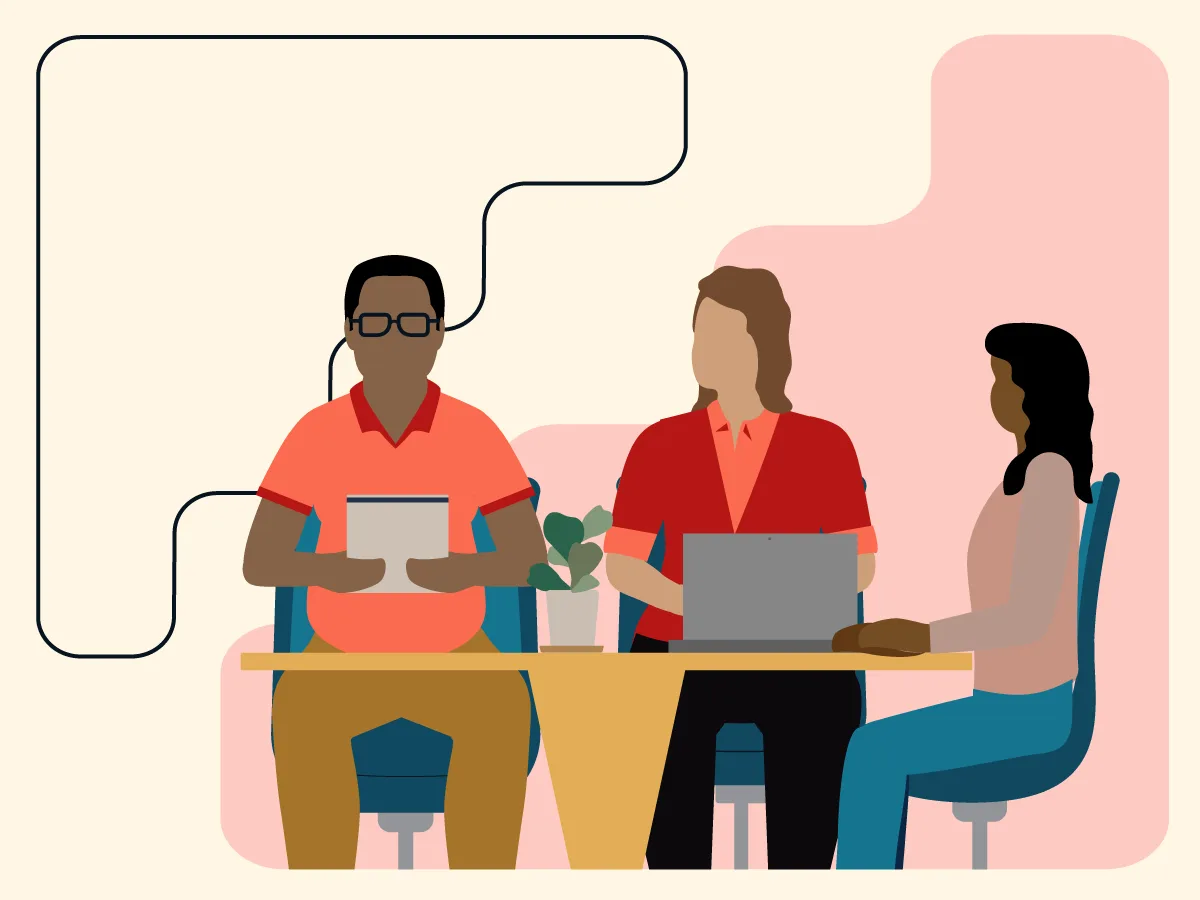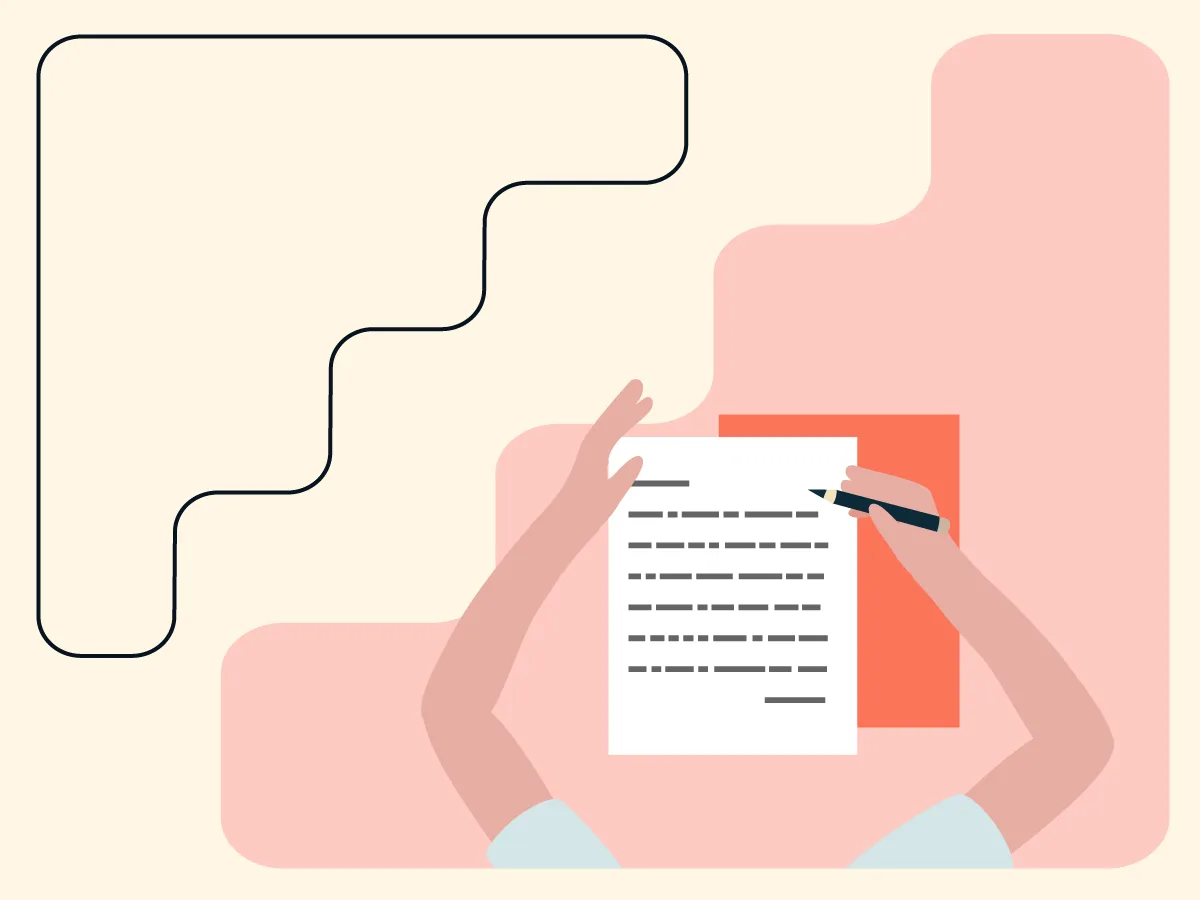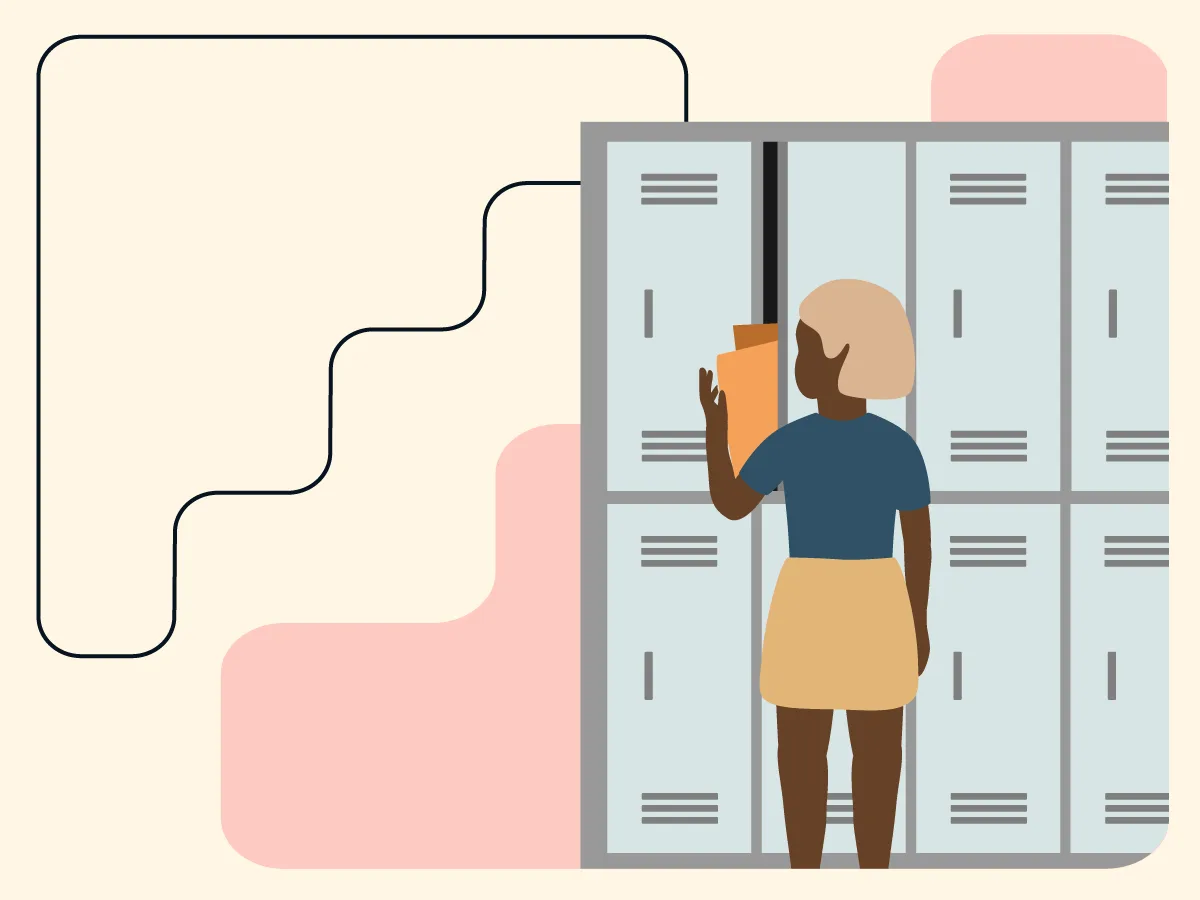Bonus episode: What I wish I’d known sooner about evaluations for special education

Stay in the know
All our latest podcasts delivered right to your inbox.
Parents, teachers, and psychologists all have something they wish they’d known sooner about how kids are evaluated for special education. This bonus episode of Understood Explains offers tips from parents who have been through the evaluation process at least once — and experts who have been through it hundreds of times.
Related resources
Episode transcript
Leslie: My name is Leslie and I'm from Little Rock. My eldest daughter was diagnosed at age 7 with dyslexia and unspecified learning disorders. This is what I wish I knew the most before an evaluation. I wish I knew what the heck was evaluation!
Andy: From the Understood Podcast Network, this is "Understood Explains." I'm your host, Andy Kahn, here with a bonus episode.
Our first season covered every part of the process that school districts use to evaluate children for special education services. In those first 10 episodes, I talked with parents who've been through the evaluation process at least once — and experts who have been through it hundreds of times.
But at one point, each of those people were brand-new to this process — like I imagine many of you listening are now. Something you didn't hear in the other episodes was this: At the end of our conversations, we asked our guests what they wish they would've known sooner about the evaluation process.
We got a bunch of different answers from parents and experts alike. And I found each of their perspectives to be helpful, enlightening, or just encouraging for those at the beginning of their evaluation journeys. My hope is that by sharing some of these answers, it'll leave you feeling better prepared to take on school evaluations with your child.
First, let's hear from some parents.
Jennifer: Hi, my name is Jennifer from Atlanta. I have a son, Nathan, who's 11. He has dyslexia, dysgraphia, and ADHD. So I wish I would have known when I started this process with my son, when I first requested that first evaluation, I was just suspecting that there was reading — unexpected reading problems. And so because my concerns were about reading, that's really what the school focused on when they evaluated him. And we kind of missed that bigger picture. To me, at the time in my head, I was like, OK, if it's dyslexia, we can remediate dyslexia, and then he's going to be fine. But we did that. We found out it was dyslexia, we remediated the dyslexia, and then he wasn't fine. There was more. I wish that I would have been more open to the fact that maybe there's other challenges as well that we need to address. But in my mind, it was just like, if I can just get this one thing, and we can fix this one thing, everything will be OK. And I feel like it might have been a little easier on me emotionally if I would have not been so certain that that one thing was going to solve all our problems.
Keith: My name is Keith and I live in Columbus, Georgia. And my son's name is Elijah. He's 11 years old and he's been diagnosed with ADHD. If I had to state or describe something I wish I would have known earlier about ADHD and the diagnosis, I will just say, knowing more about it. I didn't understand what the parameters or what the symptoms of it was. Had I known about it probably earlier, I would have been able to take a more proactive role in assisting him in managing it.
Andy: One theme that came up often in these conversations with our guests was the focus of our third episode: Your rights in the evaluation process.
Michele: My name is Michele, and I live in the Bronx, New York. What I wish I had known sooner about the evaluation process is the rights of the parents, the rights of definitely of the student, and how the process is supposed to go. A lot of times the focus is taken away from the process and what's best for the child and just being right. Well, I'm, you know, we've made a determination. This is what's best for the child. It's right. But if the parent feels differently, then the parent needs to go with their gut instinct, because sometimes it's not right. And never, ever stop advocating and finding the best possible solution for your child.
Andy: Let’s move to some of the experts who were guests on our show. One of them had some advice I think all parents and caregivers should take to heart.
Christina: My name is Christina. I was a special educator for 10 years and I now currently work at a private clinic that offers neuropsychological evaluations for parents who are concerned that their student's academic needs might require special education services.
Thinking about my experience as an educator, and all the years that I spent on school evaluation teams, whenever we arrived at the place where we were discussing recommendations for students' plans, because they had been evaluated, and we were going to determine what their program was going to look like, I wish I had known that there were recommendations that I could make that even if our school didn't offer it, students might still receive that service. An example of that might be a specialized classroom setting like a 12:1, where there are 12 students and one teacher. And that smaller class setting sometimes allowed students to really get a handle on the academic content that is being instructed. Sometimes, though, I didn't always recommend that because it wasn't necessarily what the school offered that I was working in. And it was important to remember that it wasn't necessarily about what the school offered as much as what the child needed that needed to be recommended. And that's something that moving forward I've kept in mind.
Andy: Another expert guest had some insight on parents interacting with schools — and why being seen as a kind, helpful collaborator is more than just a nice thing to do.
Andrew: Hi, I'm Andrew Lee. I'm an Understood editor. And I'm also a lawyer who has authored studies on disability and education rights in schools. One thing I wish parents learned sooner about the evaluation process is that the notion of collaborating with the school is not just something that's nice or friendly or sweet. It actually has some huge benefits for you.
First of all, it makes sure that you get the best result for your child, because you're working in the best manner with a school. Second, down the road, if there's ever any serious conflict or dispute with the school, oftentimes, someone new like a mediator or a hearing officer will come in and look at what's happened. And if they see that you've been a real partner with the school, and you've tried your best to work with the school to get to a solution, they're more likely to side with you in whatever that dispute is.
Now, when I'm talking about collaboration, I'm not just saying go along with the flow and do whatever the school wants. I'm saying that you can be assertive about what your child needs, but at the same time, be polite and respectful and be a good partner in the process.
Andy: Let’s hear from one more expert.
Ellen: Hi, I'm Ellen Braaten. I'm a child psychologist who specializes in evaluating kids with learning and attention differences. I'm also the mother of two children, one who also has attention differences.
What I wish I knew when I was first starting out as a psychologist is something that's kind of obvious. And it's that kids grow up — that most of the kids I see, regardless of how much they are struggling now, grow up to be successful, competent adults. And I don't think I could have really understood that until I saw kids grow into adulthood. Until I saw kids who I evaluated who seemed to have significant issues with things like reading, or social skills, or attention differences grow up to find the area in adulthood that was right just for them. And so it's been wonderful to see that.
It also helps me, as a psychologist, realize that my goal right now is to reassure parents, to let them know that every child finds his or her own way, or their own way. And that what we need to do in the present is to figure out how to get them there.
Andy: Before we wrap up, I want to share one thing I wish I would have known sooner.
I've been evaluating kids for nearly 20 years. And at some point, I started telling parents that it's a lot harder to break your kids than you think. You see, kids are resilient. And even though the evaluation process may be nerve-racking for families, it's worth it for your kid's sake.
So don't wait. Talk with your child. Help your child buy in to the evaluation process. Help them see what's in it for them. And don't be afraid to partner with the school, and ask lots of questions.
Together, you, your child, and the school can plan a better, more comprehensive, and maybe even more efficient assessment that offers the most insights into what's going on, and leads to the right supports that can help your child thrive.
You've been listening to Season 1 of "Understood Explains," from the Understood Podcast Network. If you want to learn more about the topics we covered in this series, check out the show notes for each episode and visit understood.org.
And now as one last reminder of who we're doing all this for, I'm going to turn it over to Nina to read our credits. Take it away, Nina!
Nina: "Understood Explains" is produced by Julie Rawe and Cody Nelson, who also did the sound design for the show. Briana Berry is our production director. Andrew Lee is our editorial lead. Our theme music was written by Justin D. Wright, who also mixes the show. For the Understood Podcast Network, Laura Key is our editorial director, Scott Cocchiere is our creative director, and Seth Melnick is our executive producer. A very special thanks to Amanda Morin and all the other parents and experts who helped us make the show. Thanks for listening, and see you next time.
Andy: Understood is a nonprofit organization dedicated to helping people who learn and think differently discover their potential and thrive. Learn more at understood.org/mission.
Host
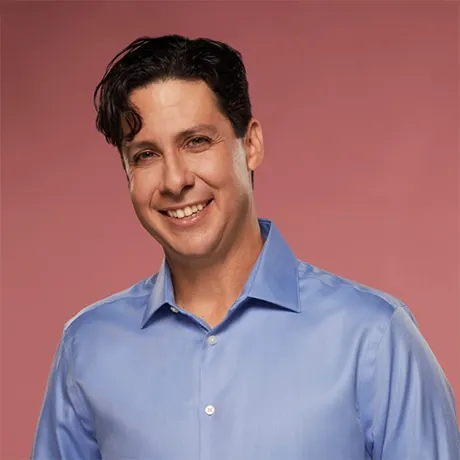
Andrew Kahn, PsyD
is a licensed psychologist who focuses on ADHD, learning differences, anxiety, autism spectrum disorder, behavior challenges, executive function, and emotional regulation.
Latest episodes
Tell us what interests you
Stay in the know
All our latest podcasts delivered right to your inbox.
